
Lower waste celebrations
There are simple ways to cut waste with our gift giving and celebrations – while taking nothing away from the quality & sentiment.
Posted on: November 29, 2019
Disclaimer: This blog reflects information accurate at the time of its original publication. It has been preserved for archival purposes and may not reflect the most up-to-date details or developments.
You really do have the power to move mountains – mountains of waste that is!
We’re calling Western Australians to make tiny changes to their routines as we head into 2020. Regardless of whether you’re able to embrace a single change or all 20 of our tiny impact-owning actions you will make a difference to the volume of waste being generated, because it really does all add up!
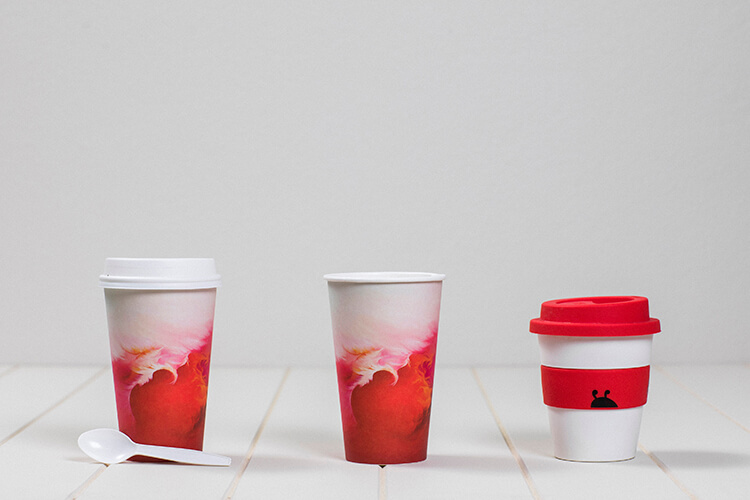
If you’re already known to friends and family as a bit of a waste champion you might want to flex your muscles further by adopting some of the ideas here, but, for those just starting out, settle in and getting thinking about how many of these 20 tiny actions are going on your 2020 New Year resolutions’ list!
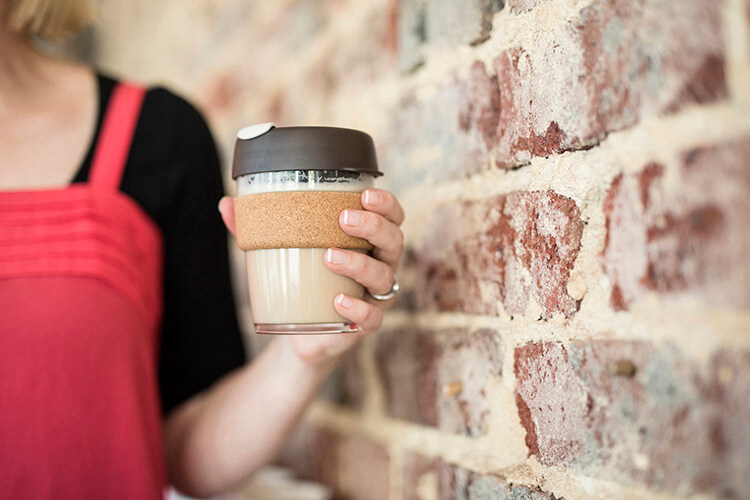
There’s a good chance that you probably own a reusable cup, but are you using it? Pull it out of the back of the cupboard right now and move it – put it in your car, leave it on your desk at work, pop it in your bag. The goal this year is to remember it more often. And if you do forget it, you can still have a positive impact by ditching the non-essential components by going lid and spoon-free!
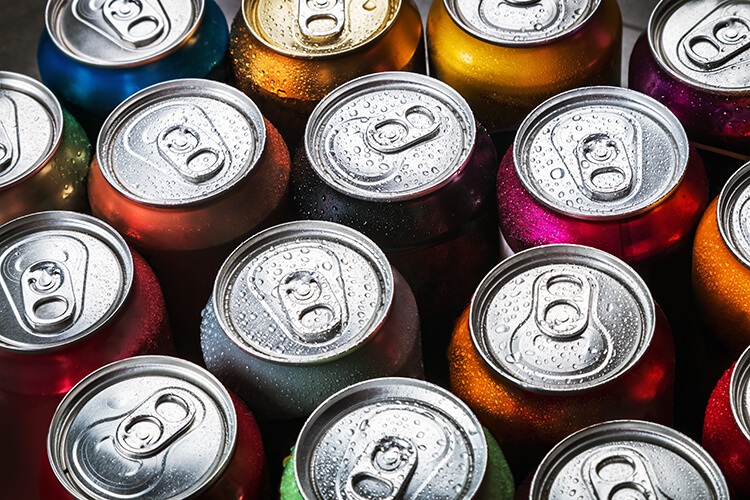
When it comes to impact-owning choices, aluminium cans can be infinitely recycled making them a better option than plastic bottles and juice boxes. Try remember this next time you’re standing at the drinks fridge – and make sure you pop it in a recycling bin once you’re done.

Small tweaks to your routine are where you can get big results over time. If you buy your lunch everyday why not pack a set of reusable cutlery in your bag so that you no longer have to grab the plastic ones on offer, or better still BYO container too? If you make your own sandwiches, swap cling film for a beeswax wrap. Avoiding individually-wrapped, single serve snack portions also reduces waste.
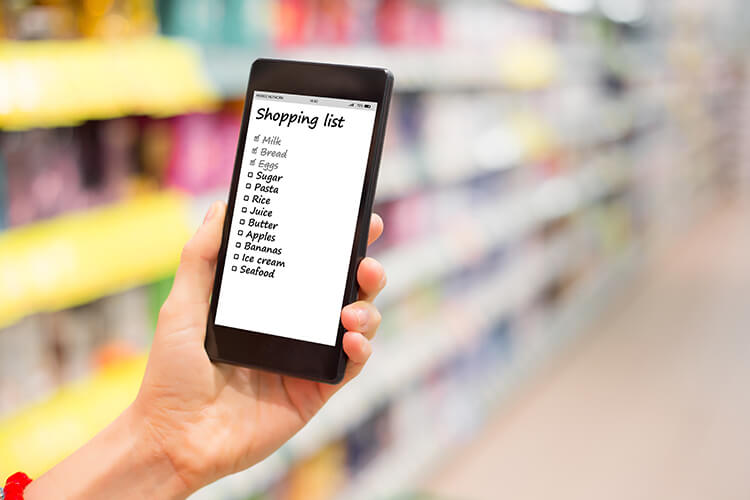
Whether it’s for groceries, clothing or homewares, establish purpose in your shopping in 2020. Make a list before you leave home and try not to deviate from it. You’ll end up with less waste and more money in your wallet.
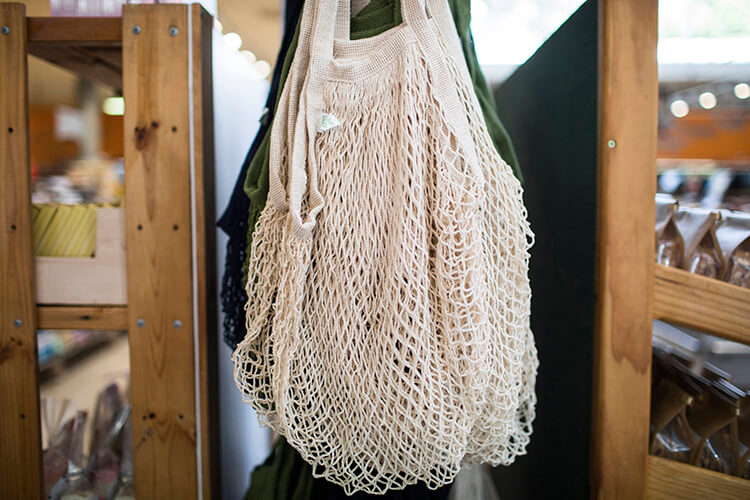
If you find yourself buying new reusable bags every time you hit the till at the supermarket, then your tiny action is simple – remember to take your bags more often. If you’ve got this one nailed, then expand it further and make sure you BYO bags when you’re making other purchases too.

Think about what you use most at home (check your kerbside bins if you aren’t sure) and, next time it appears on your shopping list, buy it in a bigger size. For example grab a 2 x 3 litre bottles of milk rather than 3 x 2 litre ones.

There are plenty of tiny single-use bits of plastic in modern life. Sometimes they are hard to avoid but other times they are easy. Pop a couple of bread tags into your wallet and reuse them rather than accept new ones throughout 2020. Better still, find ways to avoid plastic altogether when you buy bread.
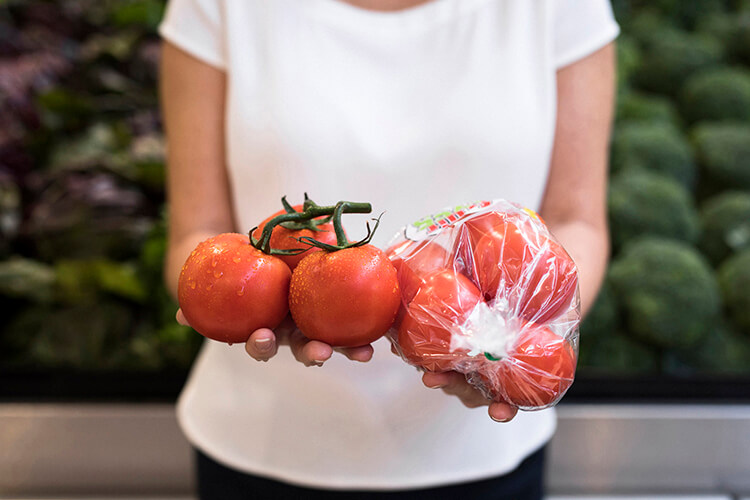
Go for loose apples, carrots, tomatoes, bananas etc next time you’re in the fresh produce section rather than buying the pre-packaged variety. While you’re at it, hold back from grabbing plastic produce bags too – unless you’re buying a serious volume all you need to do is pop your fruit and veg loose in your trolley or basket.

Buy Nothing groups are hyper-local networks of people who gift, rather than throw away, items they are no longer using. Even if you don’t have anything to give away right now, join your local group to familiarise yourself with the sorts of things there is demand for (you’ll probably be surprised!). All you need is a Facebook account to become a member.
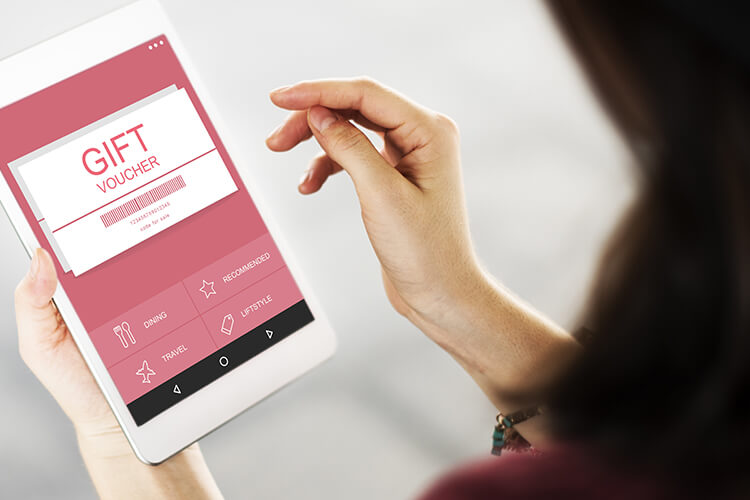
Next time you’re buying someone a present, choose electronic vouchers rather than a plastic gift card.

Concert tickets, boarding passes, emails and bills – go paperless as often as possible in 2020. You’ll save on paper and ink!
.png)
If you aren’t already following us on Facebook and Instagram do it now – we’ll keep you inspired all year long and those tiny actions will become second nature.
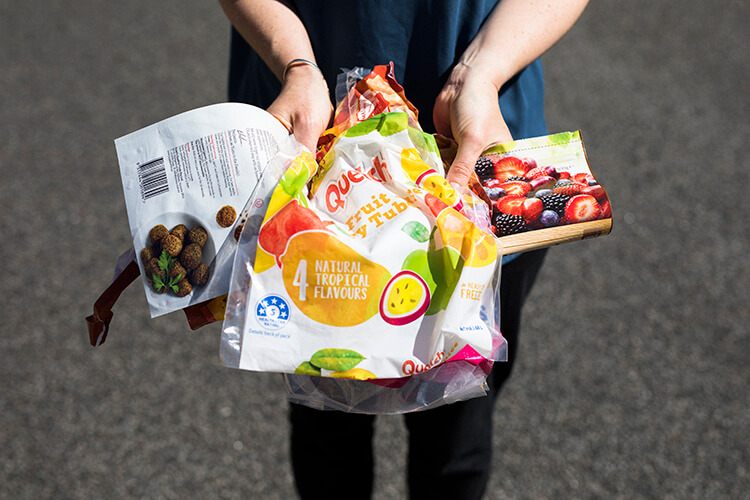
Ever noticed how much plastic packaging you generate each week? Soft plastic (think plastic bags or anything ‘scrunchable’ like chip packets) can’t go in your recycling bin, but can be recycled. Create a dedicated soft plastics ‘drop-zone’ in your home. Then, once you have a sizable collection, take it to your local Coles or Woolworths store and pop it in the REDCycle bin.

Make 2020 the year that you upgrade your razor if you’re still using disposable varieties. While stainless steel razors are considered the holy grail of impact-owners globally, small tweaks like changing to one with a replaceable head can make a bit dent in the plastic you throw away over the course of a year.
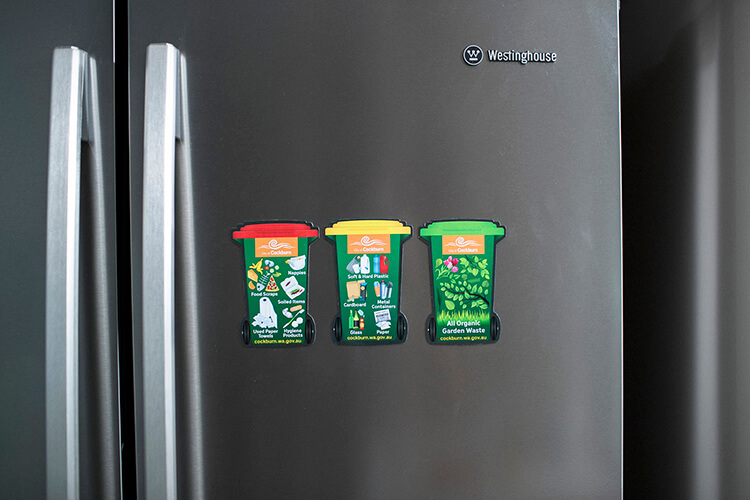
Not sure what goes where…why not take 5 mins out to call your local council office and ask if they can help you out? Many local government authorities produce materials such as magnets, stickers and posters for their ratepayers to make sorting your waste easier.

Step away from those disposable wipes – or at least commit to using fewer of them in 2020! Use an old towel or tea towel to mop up spills; repurpose worn-out clothing into cleaning cloths; or invest in reusable make-up remover pads. Or if you can’t break up with disposable wipes altogether, start rationing them – 20 fewer wipes used in 2020 will mean you’re responsible for 20 fewer pieces of plastic going to landfill.
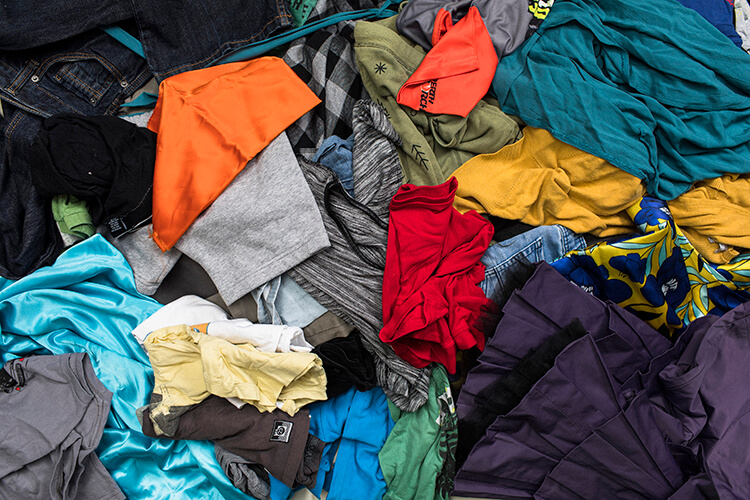
That’s right, the simple act of sorting, folding and hanging is a big tick in the impact-owning department! This is your time to familiarise yourself with what you already own. Donate or recycle the items you no longer need and while you’re at it, set yourself a challenge to wear everything you own at least once before you buy anything new.
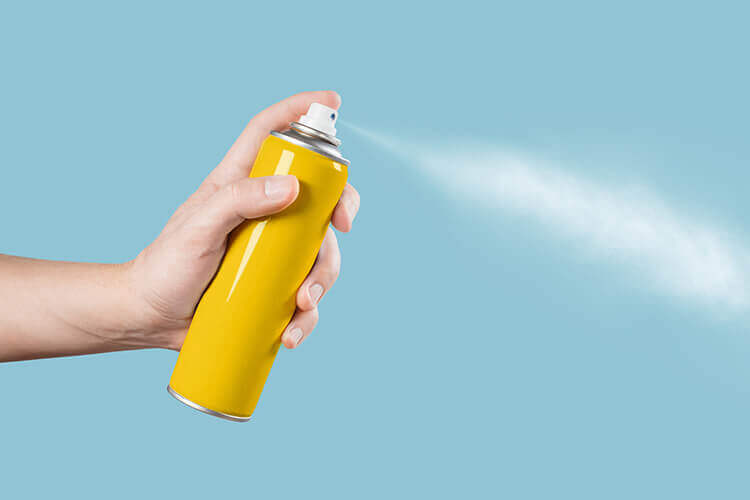
This is something that you really need to go cold turkey on. Aerosols are flammable so putting them in your kerbside bins creates an explosion risk. Find a spot to keep them until you have a few then drop them off at a hazardous household waste collection point.
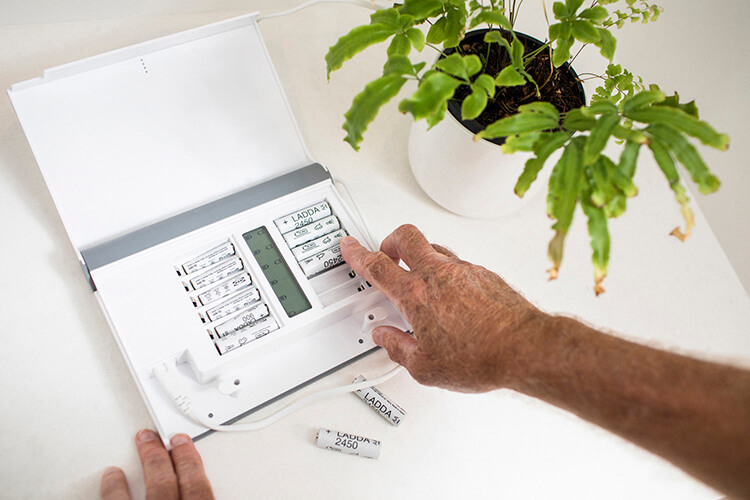
A single rechargeable battery can replace up to 1,000 non-rechargeable ones. If you can afford it, this is an impact-owning switch that will pay off for years. And, since you’re doing so well, make sure you don’t put the out-of-juice non-rechargeable batteries in the bin as you’re phasing them out. Start a little collection and drop them off at a battery recycling point (try your local library, or Aldi.)
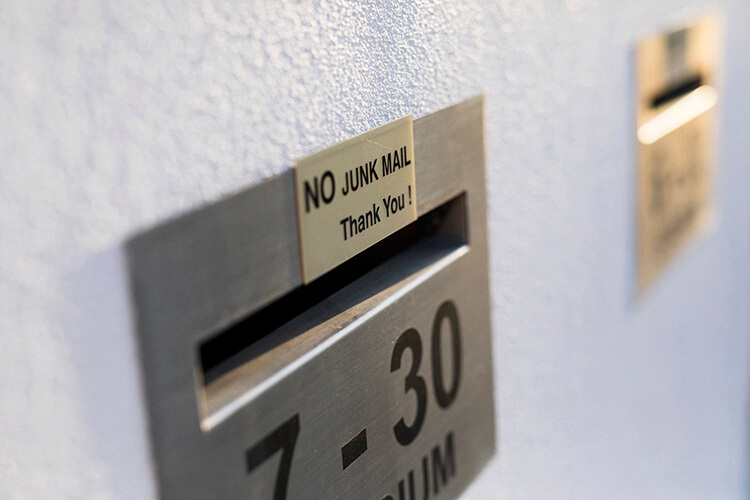
Next time you’re at the hardware store grab yourself a little sign for your letterbox. You won’t just keep out a whole lot of unnecessary paper waste, you’ll also limit the temptation to buy new things you don’t need. It’s a win-win!

There are simple ways to cut waste with our gift giving and celebrations – while taking nothing away from the quality & sentiment.

It doesn’t matter if you’re a first-time puppy parent or an experienced dog owner, chances are there are things you can do to lower the waste produced by your four-legged friend! Here are 5 things you could start to do today.

Unsure where to start on a mission to reduce your waste-footprint? When it comes to reducing waste, it really does all add up. So look no further, we have 20 tiny actions you can take to up your impact-owning game in 2020!